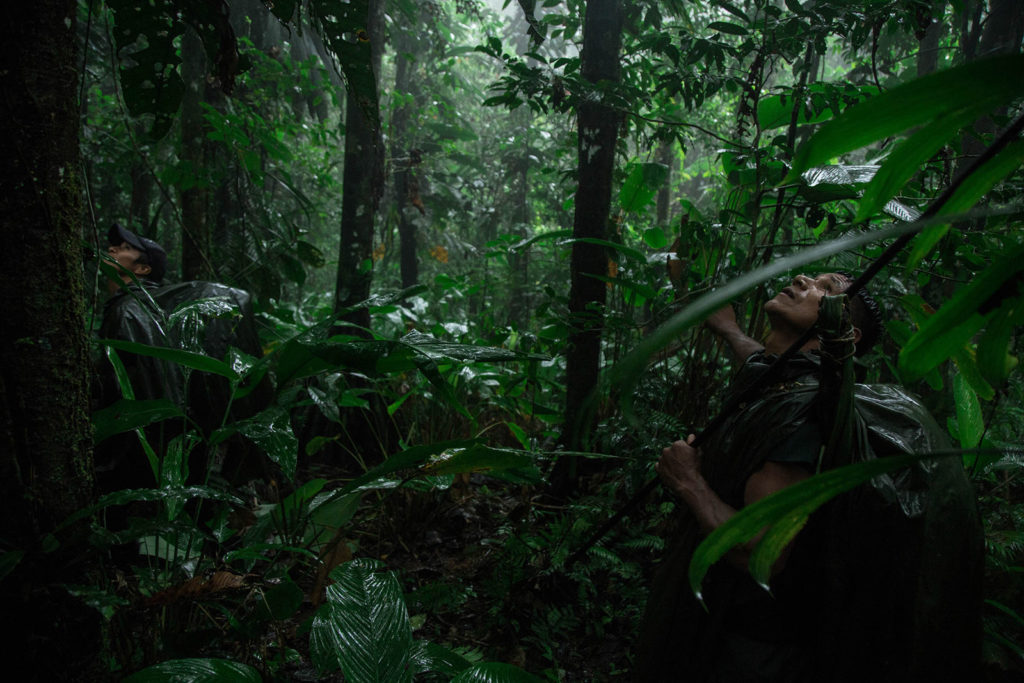We support Amazon Frontlines

It's been a while since we've done it, but we're back at it again, because the need for combat and solidarity never ends. Here, we wanted to lend our support to the protectors of water, forests, traditional medicine and the earth.
History of Amazon Frontlines (AF)

In 2011, the collective launched Project ClearWater with indigenous leaders to ensure that every Kofan, Secoya, Siona and Waorani family affected by oil pollution has safe access to drinking water.
Since 2011, AF has installed rainwater harvesting systems for nearly 1,000 families in more than 50 villages spread over five million acres of threatened rivers and forests in Ecuador, Colombia and Peru.
It was clear that building water supply systems for indigenous families on the front line of oil pollution would reduce exposure to oil-related toxins and improve village health.
What the team learned along the way was:
- Memory endurance in native cultures.
- The immense forestry knowledge of the elders (and the disappearance of this knowledge as the elders passed away).
- - The scale and scope of threats to the rainforest - from oil, African palm, mining, livestock, roads and colonization.
- - What's at stake in these struggles, including the importance of building alliances. How action speaks louder than words.

After five years working on the ClearWater project, the team was able to support the creation of an indigenous-led alliance, theCeibo Alliance, which works to defend the land, life and culture of the Kofan, Secoya, Siona and Waorani peoples.
It was also at this time that the international organization, Amazon Frontlines, was born, an international team living in the Amazon rainforest and committed to the fight for indigenous autonomy and the protection of the rainforest.








Its missions
AF's work is divided into 4 distinct and complementary areas:
Building long-term solutions with local communities
"For more than half a century, the Kofan, Siona, Secoya and Waorani peoples of the Amazon have lived downstream from Ecuador's largest oil fields, which have contaminated their rivers and streams and seriously affected their health, while enriching the oil industry and providing fuel. for the automobiles of modern society.
We recognize the injustice of this situation, and as a team of internationalists raised in the cities of Western civilization, we are committed to reinventing how we can honestly and effectively support indigenous struggles in the globalized world of the 21st century.
Our goal of "Building Solutions" is not about quick technological fixes, or naive belief in the power of "good intentions" to solve a profound human, health, social and environmental crisis, but rather about the need to work side by side with indigenous peoples struggling to secure their basic needs in a forest threatened by the industrial frontier."
Keeping their cultures and knowledge alive
"In the space of a few centuries - as a result of invasion, conquest and resource extraction - the indigenous peoples of the Amazon have struggled to protect their cultures from extinction.
Plant medicines. Healing systems. Hunting, fishing and farming techniques. Paths to spiritual enlightenment. Language, stories and myths. Cosmovision. Ways of life that care for, support and defend one of our planet's most complex, rich, mysterious and important ecosystems. Thousands of years of cultural knowledge are about to disappear."
Protecting the territory
"Wilderness. Primary rainforest. Biodiversity hotspot. Carbon sink. National park. Oil concession.
These are all expressions used by journalists, scientists, activists, oil companies and governments to describe the ancestral territory of the Kofan, Secoya, Siona and Waorani peoples of the northern Ecuadorian Amazon."
Telling their stories
"For hundreds of years, elders in aboriginal communities have shared their stories, memories and history with their children, grandchildren and neighbors. Without written languages, the Secoya, Waorani, Siona and Kofan cultures depended on the stories and generational links created by tradition oral.
As colonization, deforestation and acculturation become ever more deeply entrenched in indigenous Amazonian lifestyles, this living memory is increasingly difficult to pass on from generation to generation.
Yet today, more than ever, indigenous stories need to be told, passed on to future generations and shared with the outside world, whose destructive lifestyle is at the root of cultural loss.
We believe that indigenous communities need to tell their own stories, so we train young indigenous people to use film, photography and other storytelling techniques to pass on the knowledge and stories of their ancestors within their communities while creating films that enable those outside the Amazon. to understand their changing realities."
For more on these stories, there's quite a bit of content over here 🙂

To support the Amazon Frontlines organization and their incredible work, go here: https://amazonfrontlines.org/donate/
Thank you for them. Thank you for them. Thank you for us.
To make a donation to Amazon Frontlines, please follow this link.







